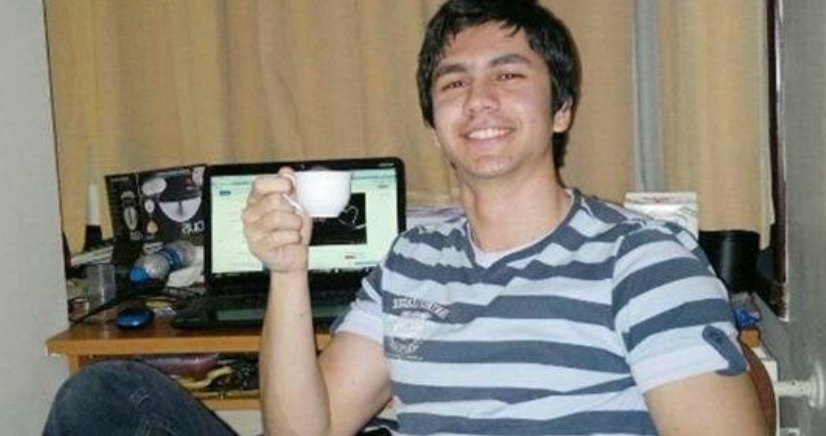Ali Furkan Yabaneri, a 24-year-old electrical engineering student at İstanbul’s prestigious Koc University, died of an overdose months after his father was jailed as part of the government’s post-coup crackdown.
Local media said Yabaneri committed suicide at his family’s home in the central Anatolian province of Kirsehir on January 15, 2018. A last-year student at the electrical and electronics engineering department killed himself due to his father’s imprisonment; relatives told media.
Hurriyet daily reported that the Public Prosecutor’s Office launched an investigation into his “suspicious” death.
Yabaneri was accepted to Koc, a non-profit private university with a full scholarship after being ranked one of the 500 best performing students in the nationwide university entrance exam in 2012.
“The father Mehmet Ali Yabaneri, a chemistry teacher at Kirsehir Science High School who were earlier arrested, was allowed from prison to attend his own father’s funeral five months ago. So now he is going to attend his 24-year-old son’s funeral,” Yildirim Kaya, a member of the opposition Republican Peoples’ Party’s (CHP) local branch in Kirsehir, told media on Tuesday.
According to the media, the father was dismissed from his profession in September 2016 and has been recently sentenced to 8 years and nine months in prison over alleged ties to the Gulen movement.
The number of people who committed suicide due to post-coup sufferings has passed 50, Kaya added. “The latest [post-coup] victim who killed himself is one of the smartest children in Kirsehir,” he bemoaned.
Stockholm Center for Freedom (SCF) has reported in one of its studies titled “Suspicious Deaths and Suicides In Turkey” that there has been an increase in the number of suspicious deaths in Turkey, most in Turkish jails and detention centres where torture and ill-treatment are being practised. Unfortunately, in most cases, authorities concluded these as suicides without any effective, independent investigation.
The suspicious death has also taken place beyond the prison walls amid psychological pressure and threats of imminent imprisonment and torture, sometimes following the release of suspects or just before the detention. SCF has compiled 102 cases of suspicious death and suicides in Turkey in a list in a searchable database format. (SCF with turkeypurge.com)
A total of 48,305 people were arrested by courts across Turkey in 2017 over their alleged links to the Gulen movement, said Turkish Interior Minister Suleyman Soylu on December 2, 2018. “The number of detentions is nearly three times higher,” Soylu told a security meeting in İstanbul and claimed that “Even these figures are not enough to reveal the severity of the issue.”
Turkey survived a controversial military coup attempt on July 15, 2016 that killed 249 people. Immediately after the putsch, the Justice and Development Party (AKP) government, along with President Erdogan, pinned the blame on the Gulen movement.
Gulen, who inspired the movement, strongly denied having any role in the failed coup and called for an international investigation into it, but President Erdogan — calling the coup attempt “a gift from God” — and the government initiated a widespread purge aimed at cleansing sympathizers of the movement from within state institutions, dehumanizing its famous figures and putting them in custody.
Turkey has suspended or dismissed more than 150,000 judges, teachers, police and civil servants since July 15. Turkey’s Interior Minister announced on December 12, 2017, that 55,665
people have been arrested. Previously, on December 13, 2017, The Justice Ministry announced that 169,013 people had been the subject of legal proceedings on coup charges since the failed coup. (SCF with turkey purge.com)
Source:
Turkish university student commits suicide as father in jail for months over alleged links to Gülen movement



